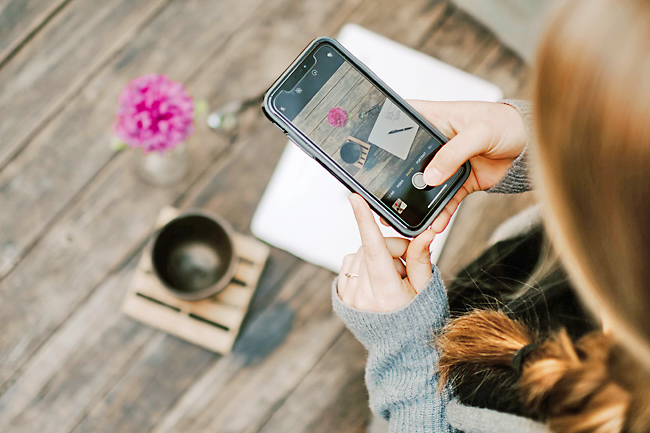Angela Haupt
THE WASHINGTON POST – Sasha Bradford doesn’t have time to lose things. She’s a working mom with lots of hobbies, and when she misplaces her keys or important papers – or leaves a favourite purse at a restaurant – she becomes frustrated and irritable.
“It impacts me greatly,” said Bradford, 34, a Washington-based federal contracting officer who blogs about mental health. Bradford has attention-deficit/hyperactivity disorder, which makes her “prone to put things places and not remember where I put them”, she said.
She’s learned to adapt, in part by writing down where she has stored valuables, such as expensive jewellery, and setting micro goals.
For example, “every time I travel, I typically forget or lose something. So now I think of one thing that’s really important to remember (to bring home), and I focus on that”.
Bradford also coaches herself not to panic when an item goes astray by focussing on breathing and affirmations.
Her internal angst is probably familiar to anyone whose phone is MIA a dozen times a day, or who can’t find the TV remote until 10 minutes after the best show of the night began.
Such lapses might be accompanied by a nagging fear: What’s going on? Is something wrong with me?

 Most likely not, experts agree. “It’s a very common occurrence and certainly very annoying,” said Professor of Psychology and Director of the Schacter Memory Lab at Harvard University Daniel Schacter. “Most of the time, losing things results from what I call absent-mindedness. That’s a breakdown at the interface of attention and memory, where we’re focussed on something other than the object we’re going to lose – be it the TV remote or a phone or glasses,” he said. “We’re thinking about something else, and then we never really encode the information into memory about where we’ve put the object, because we have other concerns occupying our attention.”
Most likely not, experts agree. “It’s a very common occurrence and certainly very annoying,” said Professor of Psychology and Director of the Schacter Memory Lab at Harvard University Daniel Schacter. “Most of the time, losing things results from what I call absent-mindedness. That’s a breakdown at the interface of attention and memory, where we’re focussed on something other than the object we’re going to lose – be it the TV remote or a phone or glasses,” he said. “We’re thinking about something else, and then we never really encode the information into memory about where we’ve put the object, because we have other concerns occupying our attention.”
That’s not necessarily a bad thing, he said; we could be busy pondering something productive, such as a work task or what to make for dinner. Or there could be another innocuous factor at play, “It might be that I mindfully put something down somewhere – maybe it’s a book I’m reading – and I know I won’t be able to get back to it for a few days,” he said. “And then I can’t remember where I put it.” This is a perfectly normal example of “transience”, or the decreasing accessibility of memory over time.
Schacter, the author of The Seven Sins of Memory: How the Mind Forgets and Remembers, has tried to train himself to keep track of where he puts his reading glasses and car keys, to the point that he only sets them down in certain places and would notice if he strayed from that routine.
Sometimes, when we’re operating on autopilot and not truly focussed on our surroundings, even the best of intentions might not suffice, Schacter said. But for the most part, he thinks people can overcome the tendency to misplace things.
It’s possible, however, that something more serious than absent-mindedness is going on. Misplacing and losing items is one sign of ADHD, which is characterised by traits such as inattention and impulsivity. If you have the condition, you’ve probably struggled with wayward objects throughout your entire life, said Psychotherapist Stephanie Moulton Sarkis based in Tampa who specialises in ADHD. To figure out if you need help, consider the intensity, frequency and duration of the tendency, “Which means, how much is it impacting your day-to-day life? How often is it happening, and how long does it take you to find your stuff?” Sometimes, people who have ADHD report that losing things affects their work or relationships – for example, if they can’t find their keys and are late to the office or a dinner party, they could anger their boss or friends.
In that case, Sarkis said it’s worth being evaluated by a doctor. There are lots of effective medications that can “make it so your brain is able to put something back where it belongs”, she said.
Many people asked Director of clinical trials at the University of Kentucky’s Sanders-Brown Center on Ageing Gregory Jicha, whether they should be worried about misplacing things. Often, it’s simply a normal part of ageing, “The brain does change over time,” he said. For example, imagine you run into someone and can’t surface their name – and hours later it pops into your mind. “That’s the slowing associated with normal ageing.”
Still, some worry it’s a harbinger of Alzheimer’s disease, Jicha said, overlooking the fact that the problem has existed since they were a teen.
If you’re afraid you’ve developed a problem that could indicate cognitive decline, he suggests turning to a trusted confidant, “One of the best ways to distinguish that is to reach out to a friend or family member – and they may tell you that you’ve been losing your keys all your life,” he said. “When we’re looking for a real change that has real meaning, what we’re really looking at is a change from past performance.”
A new tendency to misplace things, or an increase in severity, can indicate you need to see a doctor. More than half of patients who begin experiencing memory problems have a non-dementia cause that can be effectively treated, Jicha said, such as a lack of sleep or thyroid problems.
Sometimes medication is causing the forgetfulness, or vision or hearing troubles could be
behind it.
Here is some advice from these and other experts about how to overcome your tendency to misplace things:
WHEN YOU PUT SOMETHING SOMEWHERE, SAY ITS LOCATION OUT LOUD
Sometimes we barely notice where we set, say, our glasses or iPad. One way to be more mindful in the moment is to verbalise the item’s location, said Assistant Professor of Psychiatry at the University of Kentucky College of Medicine Mareen Dennis. One way to do that is to verbalise the item’s location. “You’d say, ‘Okay, I’m setting my mouse to the right of my computer right now’. And saying that either internally in your mind or out loud makes you focus your attention on where you put it,” heightening the odds that you’ll remember its location later.
MAKE UP A SONG OR RHYME
Turn keeping track of your belongings into an opportunity to be creative. You could make up a quick rhyme, Dennis suggested, “My keys are by the door for when I leave.” Or select a catchy song and sub in your own lyrics. “I’ve got a few people that use the tune Head, Shoulders, Knees and Toes,” Dennis said. “That one works really well. I’ve had somebody sing, ‘My remote is sitting by the lamp. By the lamp’.” Spending time coming up with a song or rhyme is a useful way to keep your objects’ location top of mind.
TAKE PICTURES
Ever leave a store and wander around the parking lot for 10 minutes because you can’t locate your car? Take a picture of your parking spot, especially if you’re at an airport and won’t be returning to it for a few days, suggested Professor Emeritus of Psychological and Brain Sciences at the University of Massachusetts at Amherst Susan Whitbourne. The same advice applies to lots of things: Photograph all those spots where you store easy-to-lose objects, and when you can’t find them, pull up the reference photo. “One second is all it takes,” she said.
MAKE YOUR BELONGINGS STAND OUT
Dennis recommends designating a personal “brand colour” that you love, such as bright purple. Attach your keys to a purple key ring and select a purple phone case, “so that when you’re scanning, you’re always looking for your favourite colour”. You could also put reflective tape on the TV remote, which will make it easier to find when it inevitably vanishes.
INVEST IN TECHNOLOGY
There are lots of gadgets designed to keep track of things: You can attach an Apple AirTag to products you often misplace, for example, and an app will guide you to their location, Sarkis said. There are also fobs you can put in your wallet or purse that will ring like a phone when you press a button on either another fob or an app on your phone. The downside to such technology, Dennis pointed out, is that it’s one more thing to keep track of.
SET UP A ROUTINE
Dennis coaches her patients with ADHD to make a “home for everything”. That might mean placing a basket inside your front door where you drop your keys and wallet immediately upon entering your home, or designating one drawer as the scissors drawer. Then at the end of the day, “scan the areas where you’ve been, find the items that need to be taken back home and return them to their home spot”, she said.
TAKE A BREATH
If you’re in a situation where you’ve misplaced something, “take a deep breath, and give your brain a minute or two”, Jicha said. “(The location) will come, in the vast majority
of cases.”
BE KIND TO YOURSELF
It’s certainly understandable if you’re frustrated with your tendency to misplace things. But if you keep beating yourself up about it, it could “become a self-fulfilling prophecy, and you start to think you can’t control your memory, that you’re losing it, that there’s something wrong with you, and you get anxious about that”, Whitbourne said. When your thoughts spiral in such a manner, you’re even less likely to be able to focus and keep track of your possessions. So, remember to give yourself a break.



















































